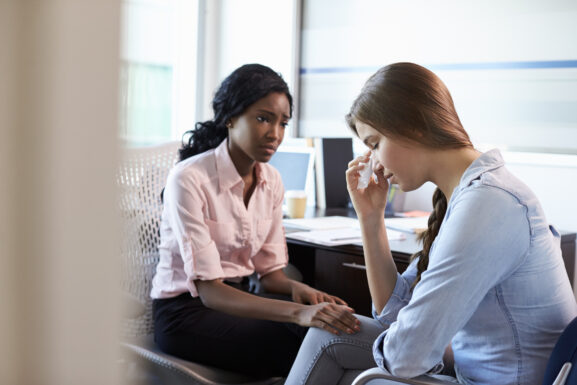Drug Detox Near You: Essential Steps for Effective Detoxification
Drug Detox Near You: Essential Steps for Effective Detoxification
Understanding and seeking help for drug detoxification can be a significant step in one’s journey towards recovery. If you find yourself looking up "drug detox near me," you're on the right path. The process of drug detox is not only vital for kicking off a recovery journey but is also imperative for the safety and health of the individual. This article aims to provide an in-depth look into the various facets of drug detoxification, steps involved, and key considerations for anyone contemplating this crucial first step.
Understanding Drug Detox
Drug detoxification, often referred to simply as detox, involves the process of allowing the body to remove the drugs from its system. The primary goal of detox is to manage withdrawal symptoms safely as the individual transitions towards a substance-free life.
Why is Drug Detox Important?
- Health and Safety: Detoxing under medical supervision ensures that withdrawal symptoms are managed safely and effectively.
- Foundation for Recovery: Successful detox can lay a robust foundation for subsequent therapeutic interventions, such as therapy or rehab.
Finding Drug Detox Near You
When searching for "drug detox near me," it is essential to consider several factors to ensure you select the right facility. Here are some key steps and considerations:
Steps to Finding the Right Detox Center
- Evaluate Your Needs: Determine the specific substances involved and any medical or mental health conditions.
- Research Facilities: Use online resources like the Substance Abuse and Mental Health Services Administration (SAMHSA) to find reputable centers.
- Verify Credentials: Ensure the facility is accredited and staffed by certified professionals.
- Read Reviews: Look for testimonials from former patients to gauge the efficacy and quality of care provided.
Questions to Ask a Detox Facility
- What types of detox programs are offered?
- What kind of medical supervision is available?
- Are there any aftercare or rehabilitation programs?
- What is the duration of the detox program?
Types of Drug Detox Programs
There are several detox programs tailored to different needs and substances. Understanding the types can help in making an informed decision.
Inpatient vs. Outpatient Detox
- Inpatient Detox: This involves staying at a detox facility where care and supervision are provided 24/7. Ideal for individuals with severe addiction or co-occurring medical conditions.
- Outpatient Detox: Allows individuals to undergo detoxification while maintaining some degree of their daily routine. Suitable for those with mild to moderate addiction.
Medically Assisted Detox
This approach involves using medications to ease withdrawal symptoms and ensure a safer detoxification process. Common medications include:
- Methadone: Used for opioid detox to reduce withdrawal symptoms.
- Benzodiazepines: Used to manage alcohol withdrawal symptoms.
- Naltrexone: Can be used post-detox to prevent relapse.
Symptoms and Management of Withdrawal
Withdrawal symptoms vary depending on the substance but commonly include:
- Nausea and vomiting
- Anxiety or depression
- Sweating
- Shaking or tremors
- Insomnia
Managing Withdrawal Symptoms
- Medical Supervision: Ensures safety and comfort.
- Hydration and Nutrition: Essential for recovery.
- Therapies: Behavioral therapies can help in managing psychological symptoms.
The Role of Aftercare in Detox
Completing a detox program is just the beginning. Aftercare is crucial for maintaining long-term sobriety.
Types of Aftercare Programs
- Rehabilitation Programs: Inpatient or outpatient rehab programs provide continued support.
- Support Groups: Groups such as Narcotics Anonymous (NA) offer peer support.
- Counseling: Ongoing individual or group therapy to address underlying issues.
FAQs about Drug Detox
1. What is drug detox?
Drug detox is the process of clearing the body of addictive substances under medical supervision.
2. How long does detox take?
The duration of detox varies but generally ranges from a few days to a few weeks depending on the substance and individual factors.
3. Is drug detox painful?
Medical detox aims to minimize discomfort through managed care and medications.
4. Can I detox at home?
Home detox is not recommended due to the potential severity of withdrawal symptoms and risk of complications.
5. What substances require medical detox?
Substances such as opioids, alcohol, benzodiazepines, and certain sedatives often require medical detox.
6. What happens after detox?
After detox, individuals may enter a rehabilitation program and participate in aftercare services to prevent relapse.
7. Can detox cure addiction?
Detox is the first step in recovery, but it is not a cure. Continued treatment and support are necessary for long-term sobriety.
8. Are there any risks associated with detox?
Yes, detox can pose risks such as seizures, heart complications, and severe psychological symptoms, which is why medical supervision is critical.
9. How do I know if I need detox?
If you experience withdrawal symptoms when not using a substance, it is advisable to seek professional evaluation.
10. What support is available for families during detox?
Many detox programs offer family support services, including counseling and educational resources.
Conclusion
Finding a drug detox program near you is a pivotal step towards recovery. By understanding the process, evaluating your needs, and choosing the right facility, you can ensure a safer and more effective detoxification journey. Remember, detox is just the beginning; aftercare and continued support play a crucial role in achieving and maintaining sobriety.
Reputable Medical Sources
- Substance Abuse and Mental Health Services Administration (SAMHSA) – samhsa.gov
- National Institute on Drug Abuse (NIDA) – drugabuse.gov
- American Society of Addiction Medicine (ASAM) – asam.org
- Centers for Disease Control and Prevention (CDC) – cdc.gov
Disclaimer: The information on this site is intended for general informational purposes only and is not a substitute for professional medical advice, diagnosis, or treatment. Medical knowledge is continuously evolving, so the content here may not always be current, complete, or comprehensive. Always consult your healthcare provider before starting or altering any treatment. In the event of a medical emergency, contact your doctor or dial 911 right away.



